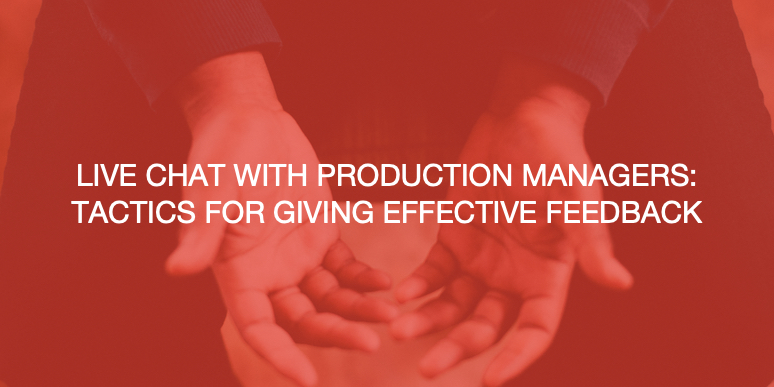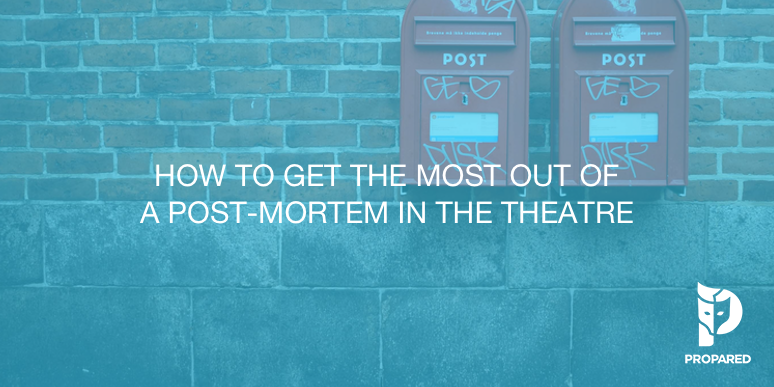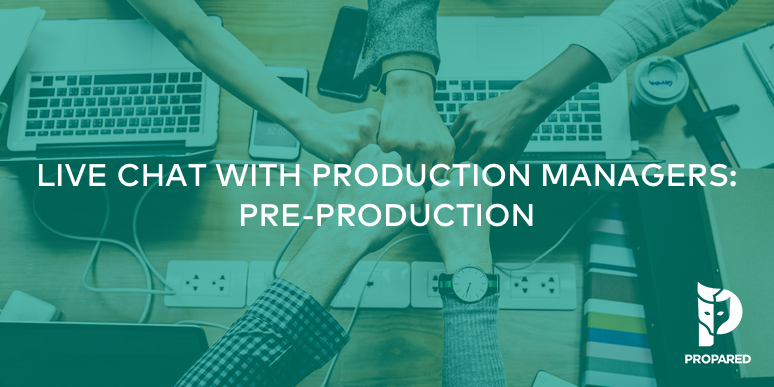
Running your own business can feel like a hustle. How will you make money? Where will you find clients? Is what you do unique? This mindset will seem familiar to long-time freelancers. They’re used to the uncertainty of gig life and can manage the stress.
The very best are able to think long-term. They make sacrifices today in the hope that they reap the benefits tomorrow, next month, or next year. They have essentially become business owners, even if their businesses have one employee. You must shift your thinking from “the gig” to “the client” and focus on building lasting relationships if you, too, want to start your own company.
There are many questions you’ll have to answer along the way. We’ve put together 9 that can help you build your plan. If this sounds like a journey you’re ready to take, read on.
1. Do You Love What You Do?
A freelancer can take any gig to pay the rent, even one he or she loathes. When the show closes, the investment in the project is done. Business owners have no such luxury. It’s tempting to take any job you get, especially when you’re starting out.
Beware.
The jobs you take will come to define your company. Clients will look at your portfolio and make quick determinations about your competencies and specialties. Do you like working in brand activation or experiential marketing? If not, think twice before accepting such projects. Doing one type of work invariably leads to similar projects. And et’s be honest: it’s hard to get excited for projects that don’t interest you. Sure, you could get on for a while. Eventually, your lack of enthusiasm will shine through and the quality of your work will suffer.
It also takes a lot of legwork to chase down projects. Event planning is a crowded market, with many vendors competing for gigs. You’ll be spending time and money cultivating relationships that may or may not translate into paying opportunities. Do you really want to be committing your limited resources to work you hate?
Networking, conferences, content development; these are just a few of the You’ll have to pull a lot of levers to generate leads for your business and close new accounts. You’ll be networking, building content, and attending conferences. If the legwork doesn’t thrill you, it’s going to be hard sledding. If you aren’t passionate about getting after the work, how can you convince clients you’re passionate about their events?
2. Is Customer Service Your #1 Priority?
Many studies show companies that put a premium on customer service are more likely to grow. This is especially true in events where so much of your work comes through referrals. The good folks at PlanningPod asked hundreds of event planners what their top strategies were for driving sales. Number one? Referrals and networking.
How do you do it? Why would clients recommend you to their colleagues? Apart from flawless execution, of course. Just because you did your job well doesn’t mean clients have an incentive to recommend you to others.
Once the event is done, maintain contact. Ask for feedback on the process and solicit suggestions for improvement. If you’re comfortable, ask for a referral directly. If you’ve made caring for your client your top priority, he or she will happily provide one. Or two. Or more!
Design a service that puts your client first in every step of the process. In fact, it may often be worth it to take a hit in order to keep a client happy. “Lose every fight,” says entrepreneur and CDBaby founder Derek Sivers. Event planners get to do a lot of different things. But first and foremost, your job is to take care of your clients. Your job is customer service.
3. Do You Know the Difference Between Running a Business and Running an Event?
In #1, we stressed the difference between working on a project and working to secure one. Let’s expand on that idea a bit. Running your own business is profoundly different from managing an event. You’ll tackle responsibilities out of your comfort zone, many of which have nothing to do with producing an event. Call these your back-of-house tasks; managing an internal budget, hiring teams, designing contracts and RFPs, maintaining insurance and liability, and so on.
As your company grows, you may spend more of your time on tasks that aren’t event-related. You’ll be developing marketing plans, negotiating employee contracts, and addressing legal and operational concerns. Instead of asking questions about designs and vendor deliveries, you’ll be asking:
-
How do I write a job description?
-
How do distribute my earnings from projects?
-
How much revenue do I invest/reinvest in my business?
-
How much should I be saving?
-
How do insure my business against loss?
-
Who is my target client?
These are questions you need to address to keep your doors open. And no one is better positioned than you to answer them. There are plenty of resources to help from both the private and public sectors. The key is to spend money on only what you need to operate. Operate means service your clients. In these early days, every dollar counts. Don’t put unnecessary strain on your budding company with tools, processes, or infrastructure you don’t yet need. Figure out your top priorities and find the least expensive tools that can help.
4. Do You Have a Specialty?
What do you do better than anyone else in your market? Most event professionals build up a resumé full of diverse experience. This is great if you’re a freelancer! It makes you much easier to hire for gig work. As a business owner, too much can be, well, too much.
You have very little time to capture the attention of most prospective clients when marketing your event business. How short? Try 15 seconds or less. Don’t lose them with an unspecific or confusing message. Help them understand what you offer, why you’re unique, and how you’re positioned to deliver in the simplest terms possible. The more services you provide or specialties you list, the more difficult it is for a client to navigate. Nurturing clients is expensive and time-consuming. Time and money are two resources you have in short supply.
Instead of trying to be everything to everyone, be the perfect thing for a few. Can you expand your offerings as your company grows? Of course! You may have whole divisions or teams focused on particular types of event work. And there are some pretty slick ways you can contextualize your marketing messages to deliver the right information, to the right person, at the right time.
When it’s just you, pick something you are really good at, enjoy doing, and promote it. Hard. Take over a niche in your local market. Then you can move on to the next.
5. What is Your Brand?
The term “branding” gets thrown around a lot. You may hear people talk about a company’s “brand” or your personal “brand.” For solopreneurs, these are usually one and the same. What does it mean? Let’s use this definition, as provided by Business Dictionary.
-
A unique design, sign, symbol, words, or a combination of these, employed in creating an image that identifies a product and differentiates it from its competitors. Over time, this image becomes associated with a level of credibility, quality, and satisfaction in the consumer’s mind. Thus brands help harried consumers in crowded and complex marketplace, by standing for certain benefits and value.
Establishing a strong brand may be one of the more difficult tasks a business owner has and one that requires constant maintenance. The best way to define a strong brand is to develop a consistent offering in the market. Can clients rely on you to produce the same high level of quality again and again? If the answer is yes, you are well on your way to building a strong brand.
Marketing Donut has some great resources on building a brand and applying it to the needs of a small business. Document everything. A new hire should be able to pick up your brand guidelines and immediately understand how to talk about, represent, and promote your business.
6. Can You Take “No” For an Answer?
I hope so because you are going to hear it a lot. It’s just the nature of starting a business in a competitive market. Potential clients sometimes hire another firm. Existing ones cut their annual budgets. Vendors won’t be able to rush a delivery. Venues won’t have the dates you want.
The worst thing you can do is take every negative to heart. Don’t fight for what you can’t get. Ask for what you want, absorb the answer, and move on.
7. What Event Tech Makes Sense for Your Business?
Event technology is your friend. That’s not a deep insight coming from the marketing director of an event management software company. But I’d be lying if I didn’t acknowledge the many dangers for young event companies in this tech-heavy world.
Event tech has become an important part of running a business. It’s also a significant investment. Not just in dollars but in time. You have to set it up, integrate it with other systems, learn the damn thing, and maybe teach others. And it’s a tool you have to continuously manage and monitor.
The tool is just that; a tool. Each platform is designed to solve a specific set of challenges but it won’t solve your problems on its own. You need to identify your specific needs, find the software provider to match, and leverage it. Here are a few ideas to help get you started:
-
Scheduling and logistics
-
Contact management/CRM
-
Paperwork and communication
-
Attendee management
-
Event marketing (websites, email, etc.)
-
On-site services (registration, check in, session tracks, etc.)
Talk to your colleagues, find out what they use. Better yet, try some platforms out. Many offer free trials with full features you can test before committing to buy. Again: time and money, time money. Don’t rush into these decisions. The last thing you want is to invest in an application that sets you back.
A brief aside about usage: event technology has become incredibly advanced over the past few years. Real-time updates, collaboration, and publishing can be done on any manner of device from anywhere, as long as you have a cellular or WiFi connection. This means it doesn’t take much to create something and instantly put it in front of thousands of eyes, including attendees and clients. With great event tech power comes great responsibility. Before you click “send,” Check everything and then check it again. Protect your brand.
8. Who Will Be Your Go-To Vendors?
A great vendor can make you look like a rock star in the eyes of a client. It can also be a catalyst for generating work opportunities when you’re still building a network. Find vendors you work well with and nurture the relationships. You want to know what you’re getting with each contract you sign. You never want to scramble to find a last minute solution for your event rentals because you didn’t take time to research.
Make a list of your preferred vendors, then make a second list of alternatives in case your first choices aren’t available. List contacts by average cost or specialty. You’ll always have an option no matter the specifics of the event.
9. Are You More Than the Events You Plan?
The greatest event managers go above and beyond their portfolio. They find ways to give back to the community, to strengthen the industry in which they work. They participate in pitch competitions, they judge awards for new technology, they teach and run workshops, or they find young talent and mentor them.
You should aspire to this as well. Join local organizations and membership chapters. Attend conferences not just to network but to support others working alongside you. If you really want to succeed, to see your business grow for the next 10, 15, or 25 years, you need the industry to stay healthy. Do your part to push the boulder up the hill.
Once you’ve answered these questions, you’ll be well on your way to starting your own event planning company. Remember why you got into this business and don’t be afraid to question your commitment to it along the way. If you truly love what you do, you’ll find a way to make it work.
This blog was originally published in November, 2015. It has been updated for accuracy and comprehensiveness.



